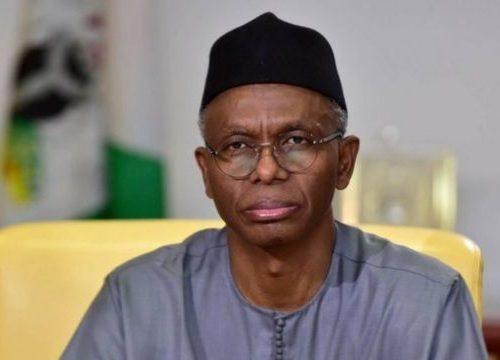President Bola Tinubu met with German Federal Chancellor, Olaf Scholz, yesterday in Berlin, where he stated that Nigeria’s pursuit of German investment in targeted sectors of the economy was focused on critical growth-enabling industries in energy, transportation, and electric power production, transmission, and distribution.
Tinubu spoke on the side-lines of the G20 Compact with Africa Economic Conference in Berlin.
Recognising the success of Siemens AG in positively transforming the quantity and quality of Egyptian electric power supply, the president noted that under his leadership, the staggered and unsteady implementation of the Siemens-supported Presidential Power Initiative (PPI) would assume a new urgency with a more deliberate process of project execution.
He emphasised the need to embrace Siemens technology in all aspects of the PPI for project sustainability.
Tinubu said, “I am very much committed to pursuing all aspects of the Siemens Power project and the skill development opportunities that will emerge from that project for our talented youths who can participate in sustaining the industry.”
Conscious of the new 2,000km ultra-high-speed rail network, which Siemens is currently constructing across 60 cities in Egypt at the speed of 230km/hour, Tinubu expressed his keen interest in the role Siemens could play in modernising and expanding Nigeria’s rail network with the provision of ultra-modern trains and railways that can more than double the speed of the existing 100km/hour standard-gauge system operating in Nigeria.
To that, the German chancellor expressed readiness, but said administrative and financial hurdles brought about by governance problems in the sector emanating from successive administrations governments had to be resolved.
The German chancellor said, “I know that there is a lot of work that has been done. There is already a big production of electricity in Nigeria, but it is not getting to the population. Of course, this has to do with the need for a provision of stations and infrastructure on the grid.

“Siemens has developed the plan and is ready to deepen implementation, but it is now up to your new government to take the follow-up action that you are now committed to taking.
“On the railway plans, Siemens will be very happy to do this when more progress is made on the power project, which has been started already.”
Tinubu drew the attention of the German leader to the need for his business community to focus their attention on value-additive processing in Nigerian solid minerals, agricultural goods, automobile production, and other job-creating sub-sectors of the economy.
He stated, “Everything the world requires in terms of business environment reforms are underway in Nigeria. Perhaps, our foreign investors are still a bit paranoid that those old Nigerian issues are intractable. But my track record speaks for itself. I have transformed an entity before now. I am here to do it again, and I will.”
Scholz nodded in agreement, saying, “There is nothing too unique about the growth of China. It came down to a lot of investment from overseas that leveraged on cheap and skilled labour with adequate internal infrastructure and shipping infrastructure for imports and exports to flow easily.
“These things are possible in Nigeria. You even have abundant natural resources. Step by step, it is achievable, Mr. President.”
The two leaders of the largest economies in Africa and Europe, respectively, agreed to deepen collaboration on the utilisation of advanced biometric systems and border control technology to check irregular migration. They also agreed on the crucial role of investments in labour-intensive industries.
Relatedly, Tinubu yesterday told international investors that beyond Nigeria’s natural resources, its highly educated, highly skilled and naturally industrious citizens were the country’s primary asset and advantage over other nations in the global race for new investments.
Speaking in Berlin during a panel discussion titled, “Fostering local value chains and investments in Africa – the role of the German private sector,” at the G20 Compact with Africa Economic Conference, Tinubu said while promoting the rule of law was crucial for attracting foreign investments. Nigeria’s energetic youth population and well-educated populace represented the greatest incentive provided to investors toward the mutually-beneficial replication of China’s economic resurgence.
He said, “We are dogged in our pursuit of natural gas development today, in tandem with hydrogen production for tomorrow. The world knows Nigeria as a leader in the energy sector.
“Our vast gas deposits and business-friendly environment make us an attractive investment destination. But we are going a step further now. We are creating fiscal responsibility and tax reforms as we reform our financial institutions to expeditiously accommodate foreign investments.
“We are eager and ready to partner with you. We have the youngest, largest, and most vibrant youth population in Africa. Equally, we have every ingredient required in the making of a modern economy: a well-educated population, a massive market, and the political will to bring it all together under my leadership.”
According to the president, “Africa has moved beyond the false past notions of business disincentivisation and poor adherence to the rule of law. We now fully recognise the nexus between the inflow of investor money and the sanctity of contracts. We want to partner on the basis of who we are and what we do, rather than on the basis of long-held misconception.”
Tinubu apprised the summit with the country’s intentional move toward developing labour-intensive sectors of the Nigerian economy for massive job creation as well as a new emphasis on technological progress and new opportunities in Nigeria’s rapidly expanding information and communications technology space.
He assured potential investors that Nigeria had moved beyond restrictive policies and, today, capital could be moved in and out of the country freely, providing flexibility for investors.
According to him, “Nigeria has consolidated on its democracy with several consecutive handovers of power. There is stability and predictability in the socio-political development of our country, which provides a conducive atmosphere for business operations and investment.
“Your money is safe. Since I assumed office in May 2023, we have embarked on transformative changes, removing all obstacles hindering businesses. We are reforming the economy based on the principle and philosophy of good governance.”
While persuading German automobile firms to establish manufacturing plants in Nigeria, the president invited German businesses to take advantage of investment opportunities in multiple sectors following the successful visit of the German Chancellor to Nigeria in October.
In his intervention, Scholz announced the readiness of the German government to make available four billion Euros for consultation, investments, and further leveraging of private engagement until 2030.
He said, “To be clear, this is not about development aid according to outdated donor-recipient schemes. This is about investments that pay off for both sides.
“In Germany, we will need large quantities of green hydrogen on our way to climate neutrality in 2045, a significant portion of which we will import, including from Africa.
“Many African countries have much larger potentials for renewable energy and competitive hydrogen production than we do. I am convinced that there are fantastic opportunities for expanding cooperation between German and African companies in this regard.”
The German Chancellor further stressed, “The Compact with Africa is the central initiative of the G20 to further unleash this enormous potential of Africa, as a partnership in mutual interest and to achieve global goals, such as climate neutrality, sustainability, and resilience of our economies.
“We will not achieve these goals here in Europe without collaboration with our African partners. Since the Compact with Africa was launched under the German G20 presidency in 2017, it has aimed to promote private investments and employment jointly and advance reforms in partner countries to lay the groundwork for truly sustainable growth that benefits the citizens.
“The Compact with Africa is effective. In comparison to the whole of Africa, the Compact countries economically outperform. Last year, the economic growth of Compact-with-Africa partner countries was almost twice as high as that of the rest of African countries.
“Direct investments announced in the partner countries last year amounted to $133 billion, six times higher than the previous year and more than twice the total for the rest of Africa.
“Moreover, the export growth of Compact-with-Africa countries was three times higher last year than in other countries on the continent. These are impressive figures, accompanied by remarkable reforms in partner countries, such as in taxation or investment promotion. With such reforms, partner countries significantly contribute to improving their business environment and investment conditions, for the benefit of their citizens.”
Earlier in his keynote address, Scholz noted the dynamic and evolving nature of economic relations between the developed and developing nations of the world as he positioned Germany to enhance partnership with Nigeria and Africa on a mutually-beneficial basis.
He stated, “To be clear, this is not about traditional development aid with donor-recipient schemes. Instead, we now focus on investments that yield benefits for both parties.
“In Germany, as we strive for climate neutrality by 2045, we anticipate a substantial demand for green hydrogen, a considerable portion of which we plan to import, including from Africa.
“Many African countries possess larger potentials for renewable energy and competitive hydrogen production than we do. I am convinced that there are fantastic opportunities for expanding cooperation between German and African companies in this context.
“I highlighted this during my visit to Nigeria, where we already operate a hydrogen office and aspire to be a partner in the ambitious expansion of renewable energies.”
Other panellists at the discussion were President Alassane Ouattara of Côte d’Ivoire; Prime Minister Aziz Akhannouch of Morocco; President Macky Sall of Senegal; Sabine Dall’Omo, Chairperson of Afrika-Verein (German-African Business Association); and CEO of Sub-Saharan Africa, Siemens AG.
Tinubu would today host notable German Business Chief Executives at a Nigeria-Germany Business Roundtable in Berlin, Germany.
ThisDay






















